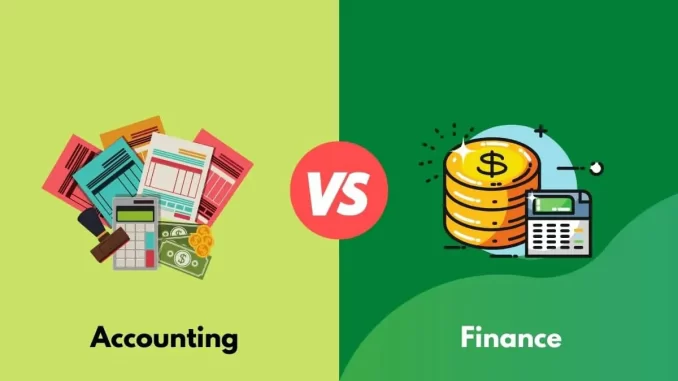
Opting to pursue a finance or accounting degree can open many career doors; it’s crucial that you make the appropriate choice to meet both your current and long-term career objectives.
While accounting and finance coursework overlap to some extent, the major distinctions are significant. This article will give an overview of each field so you can decide which best meets your interests.
What is Accounting?
Accounting involves measuring, processing and communicating financial data about economic entities like businesses. Such information can be valuable to a wide range of people – bank officials for loan evaluation purposes as well as investors looking at company data to make sound investment decisions.
Accountants’ duties involve recording transactions, classifying them, analyzing them and compiling reports to present to both internal and external audiences. Furthermore, accountants prepare and present financial statements such as balance sheets, cash-flow statements and income statements according to generally accepted accounting principles regulated by government agencies.
Financial analysts and accountants both require extensive mathematical calculation skills; however, their work varies in terms of influence over a company’s finances and prediction methods used. Depending on your career aspirations and preferences, one path might be better than another.
What is Finance?
Finance is the practice of overseeing money and its associated systems, from nation trade deficits to the individual bills in someone’s wallet. Finance can be broken into three broad categories: public finance, corporate finance, and investments.
Public Finance refers to all aspects of government budgeting, taxes and overall financial health in a nation. Balancing government spending against revenue through taxation or public debt–marketable securities which pay investors interest over time–can often be achieved.
Corporate finance refers to the practice of overseeing a business’s financial resources in order to maximize shareholder wealth for publicly traded companies or owner wealth for privately held ones. It generally involves analyzing past performance, current assets and liabilities as well as projecting future cash flows; free cash flow also is often measured to evaluate how much money there is left over after covering expenses to distribute or reinvest back into operations.
What is the Difference Between the Two?
Finance and accounting are both integral parts of business life, so it’s vital that we understand their differences. For instance, when seeking to hire a financial advisor for either personal or business finances it would be prudent to find out whether one specializes in either finance or accounting as the preferred solution.
Accounting professionals provide businesses with an in-depth picture of their financial health by tracking expenses and revenues to provide an up-to-date snapshot. In addition, accountants specialize in cost accumulation/allocation/auditing tasks.
Financial professionals specialize in forecasting and planning for the future. This can include forecasting the economy as a whole as well as activities like investing, budgeting, borrowing/lending arrangements, capital management as well as using information recorded by accountants to make decisions that maximize value with substantial returns on investments – often involved with mergers/acquisitions of major corporations.
Which One is Right for Me?
If you are interested in entering the business world, finance and accounting could be perfect for you. Both disciplines require keen numerical skills combined with business acumen – both fields being highly sought after nowadays! GMercyU offers programs in these disciplines which will prepare you for an exciting and lucrative future!
Accounting and finance are two of the most sought-after business degrees available today, but your choice between them depends on how you interact with money in the workplace. An accounting degree provides concrete numbers related to budgets, audits and taxes while finance degrees focus on devising ways in which funds are moved around or invested.

Leave a Reply